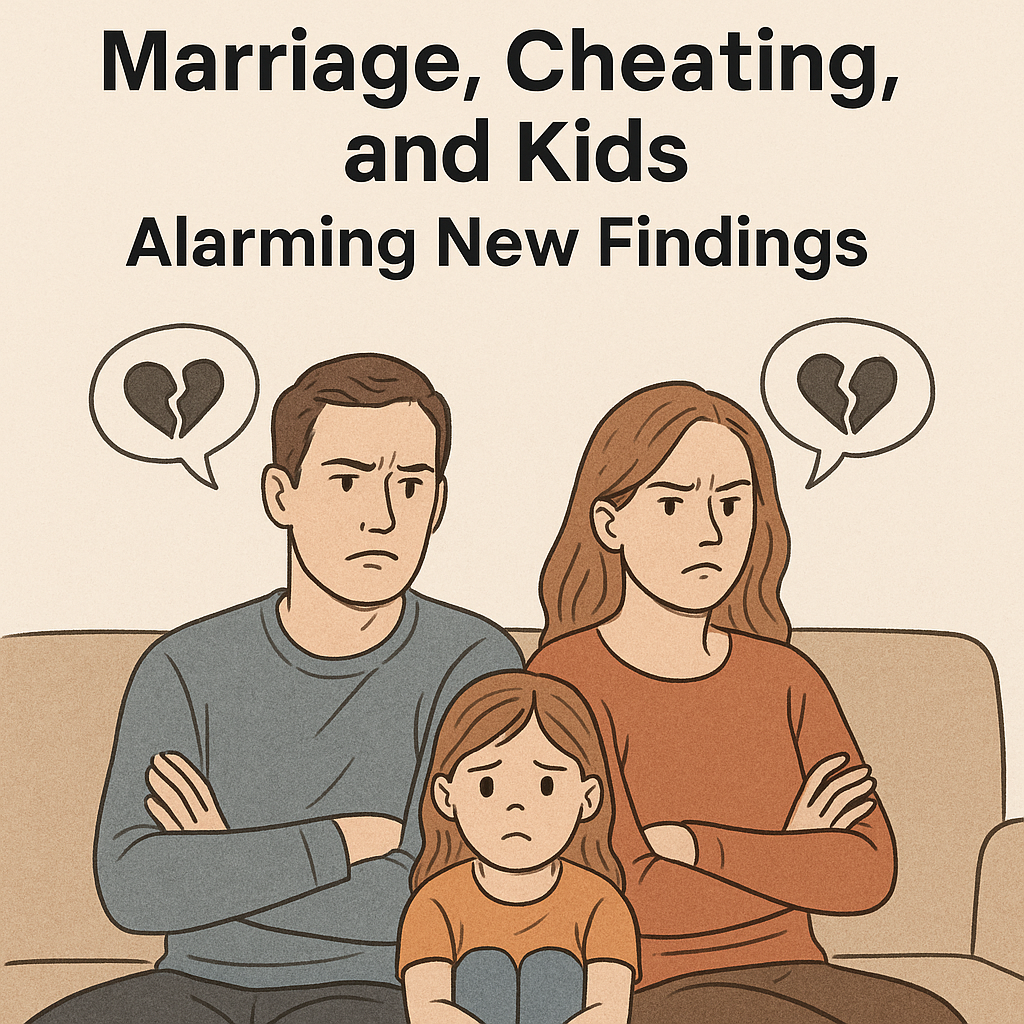
Modern relationships aren’t just evolving — they’re being tested like never before.
Recent research shows disturbing new trends around marriage, infidelity, and how deeply these struggles affect children. If you’re wondering where your relationship stands — or how to protect your family through tough times — you’re not alone.
In this article, we’ll break down the latest studies on marriage and cheating, explore how children are impacted, and offer expert-backed advice for couples navigating betrayal and healing. Let’s dive in.
The State of Modern Marriage: Key Trends
Marriage today looks different from even a decade ago. Fewer couples are getting married, and those who do face mounting pressures.
Key trends include:
- About 40–50% of married couples in the U.S. end up divorcing (American Psychological Association).
- Emotional infidelity is now reported more often than physical cheating.
- Attitudes toward lifelong marriage are shifting, with more people questioning its role in happiness.
New studies (like those from Pew Research and the Journal of Marriage and Family) reveal that trust is more fragile than ever, and emotional connection is the number one predictor of marital success or failure.
Cheating in Marriage: What Studies Reveal
Why do people cheat? It’s not just about physical attraction.
Research highlights these main reasons:
- Emotional neglect — feeling unseen, unheard, or unloved.
- Opportunity and temptation — particularly in work or online settings.
- Dissatisfaction — boredom, unmet needs, resentment.
Interestingly, emotional affairs are rising faster than physical ones. Women, in particular, are more likely to seek emotional connection elsewhere, while men still report physical satisfaction as a leading motive.
According to the American Association for Marriage and Family Therapy:
- 15% of married women and 25% of married men admit to having extramarital affairs.
And those are just the ones who admit it.
How Infidelity Impacts Children
When cheating shatters a marriage, the emotional fallout doesn’t stop with the couple. Kids feel it — deeply.
Effects on children can include:
- Trust issues that carry into adulthood.
- Increased anxiety and depression.
- Difficulty forming healthy future relationships.
Studies from Harvard and the American Psychological Association show that kids who witness betrayal or divorce rooted in infidelity often struggle longer with self-esteem and emotional regulation.
Top 3 lasting impacts:
- Trouble trusting others.
- Emotional instability and anxiety.
- Fear of commitment in their own relationships.
Children internalize betrayal even if it’s not directly explained to them. They pick up on secrecy, anger, and sadness — and they often blame themselves.
Warning Signs of a Marriage at Risk
Sometimes, problems build quietly before exploding. Knowing the early signs can help couples take action before it’s too late.
Watch for:
- Communication breakdowns — talking less, arguing more.
- Sudden secrecy — hiding phones, changing passwords.
- Emotional distance — feeling like roommates instead of partners.
If you notice these patterns, it’s critical to address them early. Marriage counseling or honest conversations might save a relationship that’s quietly slipping away.
Expert Advice: Healing After Cheating
Rebuilding trust after infidelity isn’t easy — but it is possible if both partners commit.
Experts suggest:
- Full transparency — no more secrets, no more lies.
- Therapy — individual and couples counseling to work through resentment, grief, and fear.
- Rebuilding communication — setting new ground rules for honesty and emotional support.
Dr. Shirley Glass, a leading infidelity researcher, calls trust “a glass wall” — once shattered, it’s hard to rebuild, but not impossible with the right tools.
Healing means real work, but many couples come out stronger after facing betrayal head-on.
Protecting Children During a Marital Crisis
When marriages struggle, protecting kids’ emotional well-being must be a priority.
How to help your children:
- Talk openly but age-appropriately.
- Maintain routines to offer stability.
- Reassure them it’s not their fault, and that they are loved unconditionally.
- Watch for signs of distress like changes in sleep, appetite, or behavior.
- Consider child therapy if needed.
Checklist for protecting kids:
- Use simple, honest language.
- Never use children as messengers or spies.
- Model respectful behavior, even during conflict.
Children don’t need every ugly detail — they need safety, reassurance, and love.
Conclusion: Strengthening Families Through Truth and Action
The truth is clear: marriage today faces real challenges, and infidelity cuts deep — especially when children are involved. But facing problems head-on, seeking help, and protecting kids can turn crisis into a chance for real growth.
If you’re seeing signs of trouble in your marriage, don’t ignore them. Early action can make all the difference — for you, your partner, and your family.
You’re not alone — and healing is possible.
FAQs
Can a marriage survive after cheating?
Yes, many marriages survive and even thrive after infidelity, but it requires honest communication, professional therapy, and a deep commitment from both partners to rebuild trust.
How does infidelity impact children emotionally?
Children exposed to infidelity often struggle with trust issues, anxiety, low self-esteem, and difficulty forming healthy relationships later in life. Stability, open communication, and professional support can help them heal.
What are early signs that a spouse may be cheating?
Common early signs include emotional distancing, secretive phone behavior, sudden defensiveness, unexplained absences, and changes in intimacy levels.
Should you tell your kids about infidelity?
Experts recommend being honest in an age-appropriate way without sharing explicit details. Children need reassurance that they are loved and that the problems are not their fault.
How can couples rebuild trust after an affair?
Couples can rebuild trust by practicing full transparency, attending therapy, setting new relationship boundaries, and consistently working to meet each other’s emotional needs.



